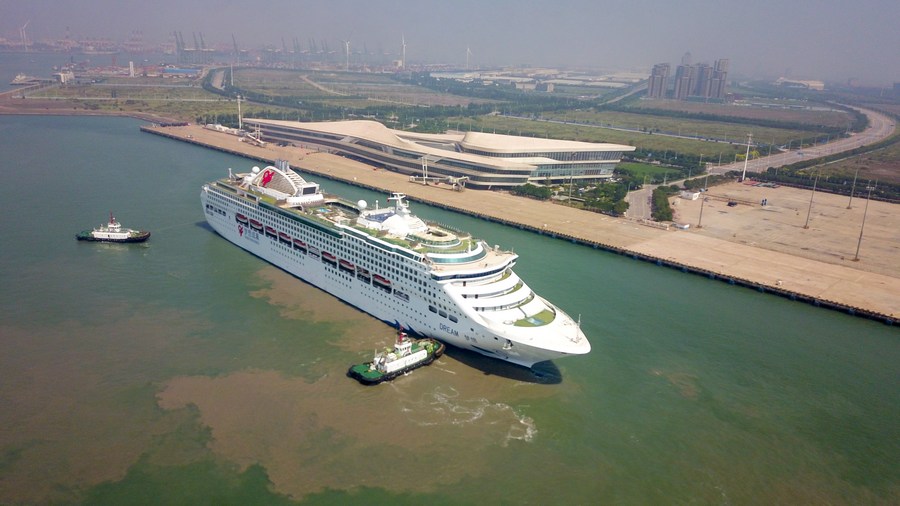China’s travel market is about to get another boost as the Golden Week holidays, which encompasses both the Mid-Autumn Festival and the National Day, arrive.
The outbound tourism market has experienced a surge in growth for the Golden Week holiday period, which lasts eight days from September 29 to October 6, with bookings up nearly 20 times compared with last year, according to the report released by Ctrip, a major Chinese travel service provider. Popular destinations include Thailand, South Korea, Malaysia, Singapore, Australia and the UK.
The expansion of outbound group tours and loosened visa policies for Chinese tourists are favorable conditions for the further recovery of the outbound tourism market.
China in August announced a third round of resumption of outbound group tour services to 78 countries and regions, including the U.S., Japan, South Korea, Australia, India and most European countries, expanding the scope from 60 to 138 countries and regions.

A Chinese tourist poses for a photo at the Colosseum in Rome, Italy,
Visa service agency VFS Global said it has witnessed surging reservations for visa applications to different countries since March. As of May, visa applications from Chinese residents reached 40 percent of the 2019 level before the pandemic. The agency expects that visa application demand will likely remain high throughout the year.
Hundreds of Chinese tourists landing in Bangkok received a VIP welcome on Monday as Thailand’s Prime Minister Srettha Thavisin personally greeted the first batch of visitors to arrive. Visa requirements were waived for Chinese nationals, as the country implemented a five-month visa-free policy for Chinese tourists starting the same day.
Following the announcement, searches for flight tickets to Thailand and its hotels on Chinese online travel platforms surged immediately. Bangkok, Chiang Mai and Phuket are among the top three most popular destinations in Thailand, according to data from Mafengwo, a Chinese travel services and social networking platform.
As of mid-September, booking volumes for hotels in Thailand during the National Day holiday soared 6,220 percent year-on-year, according to Chinese online travel agency Trip.com Group.

An aerial view of a Liberian cruise ship berthing at a port in north China’s Tianjin Municipality
The recovery of the cruise sector will also play a role in the flourishing outbound tourism market.
A cruise ship registered in the Bahamas docked at the Tianjin International Cruise Home Port on September 22, signaling a promising revival of the city’s cruise tourism industry. In July, another cruise ship registered in Liberia, which boasts more than 1,000 cabins and can accommodate over 2,000 passengers, also docked in the city.
The largest cruise home port in northern China, the Tianjin International Cruise Home Port has received over 880 international cruise ships and handled more than 4.26 million inbound and outbound passengers since officially opening to the public in 2010.
New trends in outbound travel
The new trends in the outbound tourism market indicate that even with a rise in prices, Chinese tourists, considering factors such as privacy, health and personalization, still prefer small, customized groups with fewer than 10 people, said Zhou Weihong, deputy general manager of Spring Tour Travel Agency.
Tourists are increasingly prioritizing the experiential aspect of their journeys, with innovative and experiential tourism products gaining popularity, Zhou said.
More than in previous years, travelers are seeking out “unique and immersive experiences,” Trip.com CEO Jane Sun said in the press release. Data shows an increase in purchases of private group tours and bookings for less-popular destinations, such as Sri Lanka and Uzbekistan, the travel provider said.
“We’ve observed a significant shift towards high-quality services and in-depth travel encounters,” Sun said in the release. “Travelers are not just exploring popular destinations but also seeking authentic and off-the-beaten-path experiences.”
















